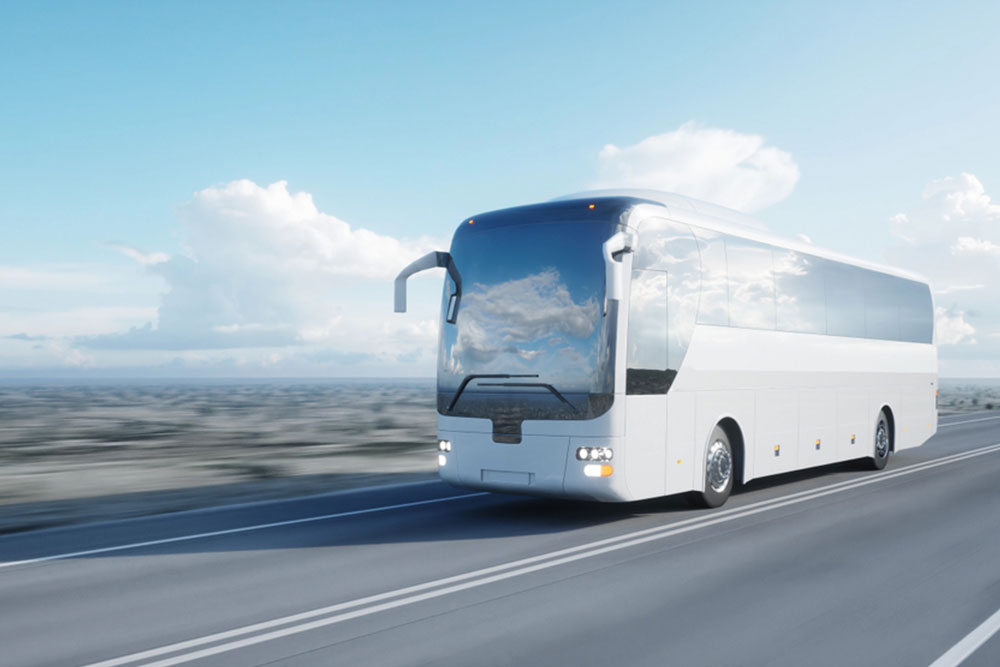Emerging Corporate Travel Trends of 2019: Innovations and Insights for Businesses
Discover the key trends shaping corporate travel in 2019, from bleisure travel to digital booking platforms. Learn how businesses can leverage these innovations to improve travel efficiency, reduce costs, and boost employee satisfaction. Explore insights on shared resources, loyalty programs, and in-person meetings, along with practical strategies for adapting to this evolving landscape to maximize benefits and stay competitive.

Emerging Corporate Travel Trends of 2019: Innovations and Insights for Businesses
In recent years, technological advancements and evolving employee preferences have significantly reshaped the landscape of corporate travel. Businesses are now more focused on optimizing travel experiences to maximize productivity, reduce costs, and enhance employee satisfaction. 2019 has been a pivotal year in this transformation, with new trends emerging that offer valuable insights for companies aiming to stay competitive in the global marketplace. This comprehensive overview explores the most prominent corporate travel trends observed this year, discussing their implications and how organizations can leverage them effectively.
Bleisure Travel Continues to Grow in Popularity
One of the most notable trends of 2019 is the increasing popularity of bleisure travel — the practice of combining business trips with leisure activities. This approach not only allows employees to enjoy personal time after meetings or conferences but also helps organizations reduce overall travel costs by maximizing trip utility. Many travelers now select destinations that offer a mix of professional and recreational attractions, effectively turning business trips into opportunities for relaxation and exploration. For example, an employee attending a conference in a vibrant city might extend their stay to enjoy local sightseeing, dining, or shopping experiences.
Post-meeting leisure activities have become commonplace, with travelers incorporating sightseeing excursions, cultural tours, and shopping trips into their itineraries. Moreover, an increasing number of employees are traveling with family members, making bleisure travel an attractive option for work-life balance. Employers recognizing the benefits of this trend are now encouraging managers to approve flexible travel plans that allow employees to combine work commitments with personal enjoyment, thereby boosting morale and job satisfaction.
Shared Travel Resources and Platforms Are Reshaping Expense Management
Another significant trend is the rise of shared travel resources, which have gained popularity among both corporations and individual travelers. Services like ridesharing platforms, short-term lodging options such as Airbnb, and consolidated booking tools offer more economical and convenient options compared to traditional methods. Shared services not only help reduce travel expenses but also foster a sense of community and sustainability. Small businesses, especially, find these options advantageous when navigating expensive urban markets such as New York, San Francisco, or London.
Sharing transportation via apps like Uber or Lyft, combined with accommodations that resonate with local culture and affordability, enables companies to manage budgets more effectively without sacrificing comfort or convenience. These platforms also provide real-time tracking and seamless payment options, simplifying logistical planning and ensuring a smoother travel experience.
Preference for In-Person Meetings Over Virtual Interactions
Despite the rise of digital communication, 2019 has seen a resurgence in the preference for face-to-face meetings among organizations of all sizes. Companies value the intangible benefits of in-person interactions, such as building stronger personal relationships, better negotiation outcomes, and clearer communication. Experts suggest that, in many cases, in-person meetings can lead to faster deal closures and increased trust, making travel a worthwhile investment.
This trend has driven demand for specialized travel packages designed to support business meetings, conferences, and client visits. Travel agencies and service providers who tailor offerings to corporate needs — including flexible scheduling, premium amenities, and convenient locations — benefit from this shift.
Enhanced Focus on Loyalty Programs for Travel Savings
Loyalty programs have become critical tools for companies and frequent travelers seeking to optimize their travel expenditures. Airlines, hotel chains, and car rental services offer rewards that accumulate over time, enabling organizations and individuals to access significant discounts, free upgrades, or complimentary stays. These programs incentivize continued patronage and can be particularly lucrative for businesses with recurring travel needs.
Some organizations leverage loyalty rewards not only for business trips but also encourage employees to use these benefits for personal travel, adding an extra layer of motivation and value. This dual-purpose approach maximizes the utility of travel rewards and enhances overall employee satisfaction with corporate travel policies.
Employee-Centric Travel Incentives and Perks
Recognizing that happy employees are more productive, many companies are now integrating employee-centric perks into their travel policies. Offering additional amenities such as upgraded hotel rooms, airport lounge access, or meal allowances improves the overall travel experience. Some organizations provide deals or discounts for extending trips, turning a routine business journey into an enjoyable personal activity.
This approach not only boosts morale but also reinforces a company's commitment to employee well-being. Furthermore, offering flexible options and personalized services demonstrates an understanding of traveler needs, fostering loyalty and a positive corporate image.
Digital Platforms and Online Booking Revolutionizing Travel Arrangements
The prominence of online booking portals continues to grow, transforming how businesses arrange their travel plans. Digital platforms offer several advantages over traditional travel agencies, including access to competitive pricing, customization options, and instant booking capabilities. These tools enable companies to manage travel arrangements independently, granting greater flexibility and control.
Moreover, online portals often feature integrated expense management tools, streamlined approvals, and real-time updates, simplifying administrative tasks for travel managers. The convenience of booking from anywhere at any time aligns well with the fast-paced nature of modern business environments, ensuring that travel plans are efficient, cost-effective, and tailored to specific needs.
In conclusion, the year 2019 has been marked by dynamic shifts in corporate travel, driven by technological innovations and changing employee preferences. The rise of bleisure travel, shared resources, a renewed focus on in-person meetings, loyalty rewards, employee incentives, and digital booking platforms all contribute to a more flexible, cost-effective, and satisfying travel experience for businesses and their employees alike. Companies that adapt to these trends can maintain a competitive edge, optimize travel budgets, and foster a more motivated and engaged workforce.





